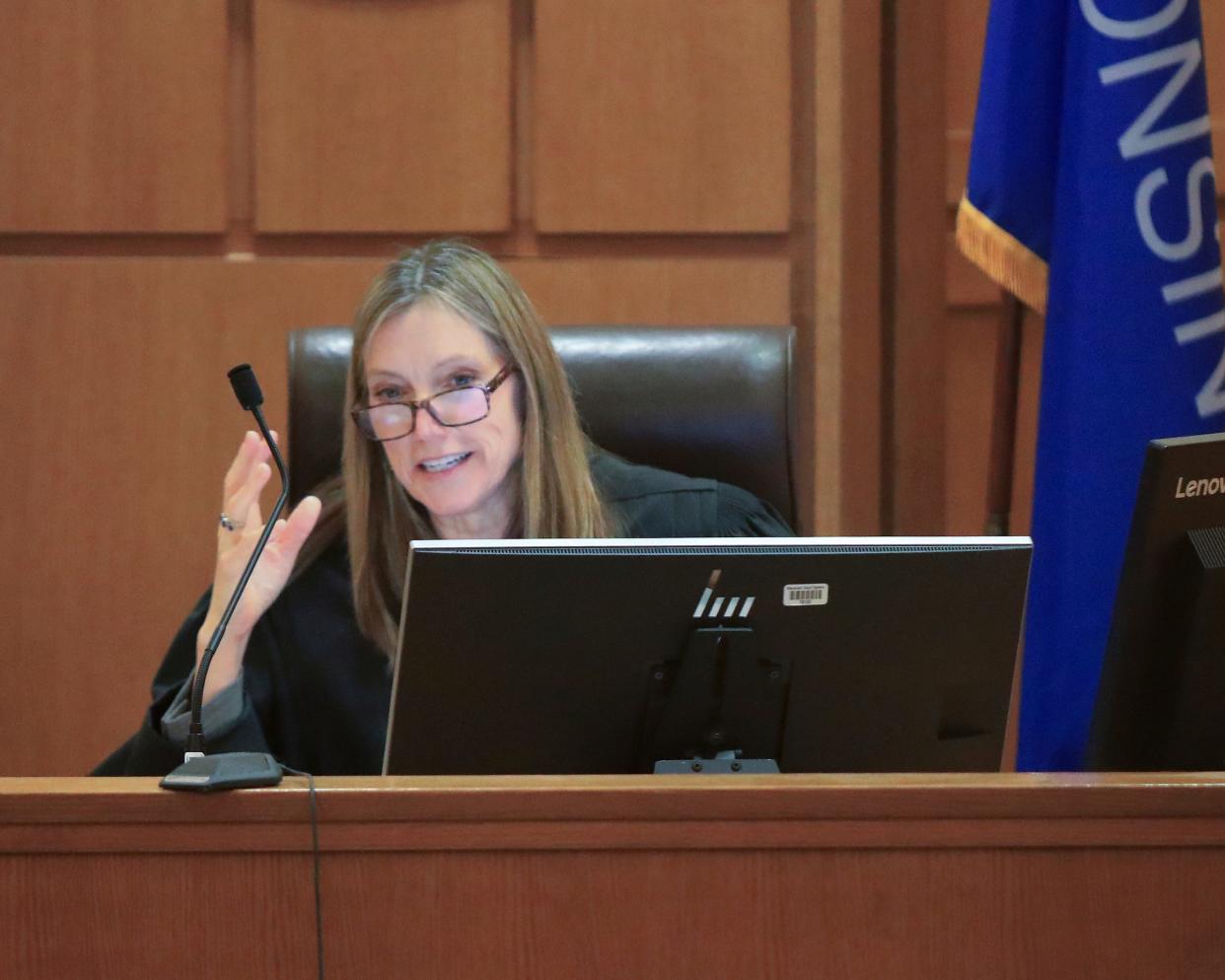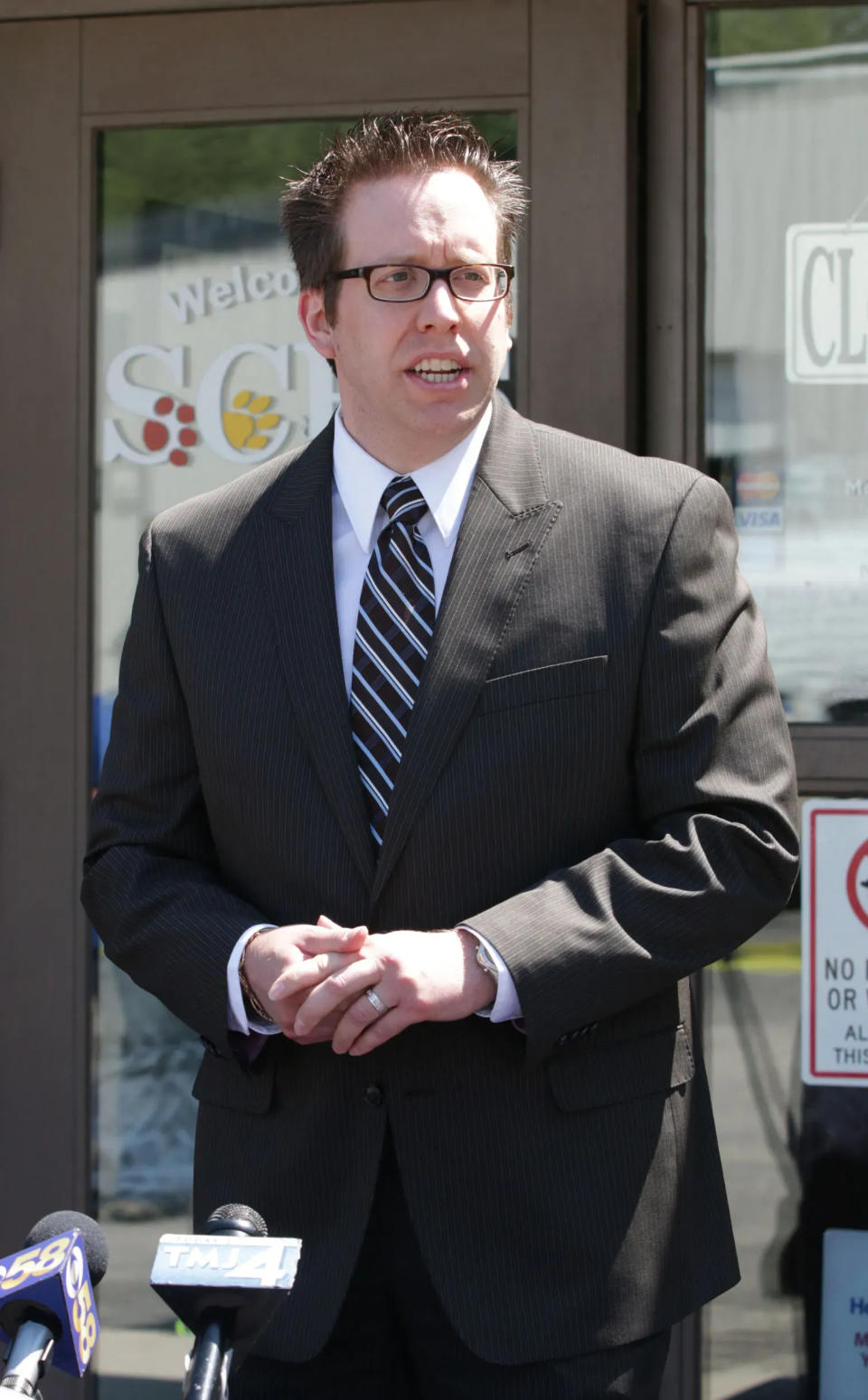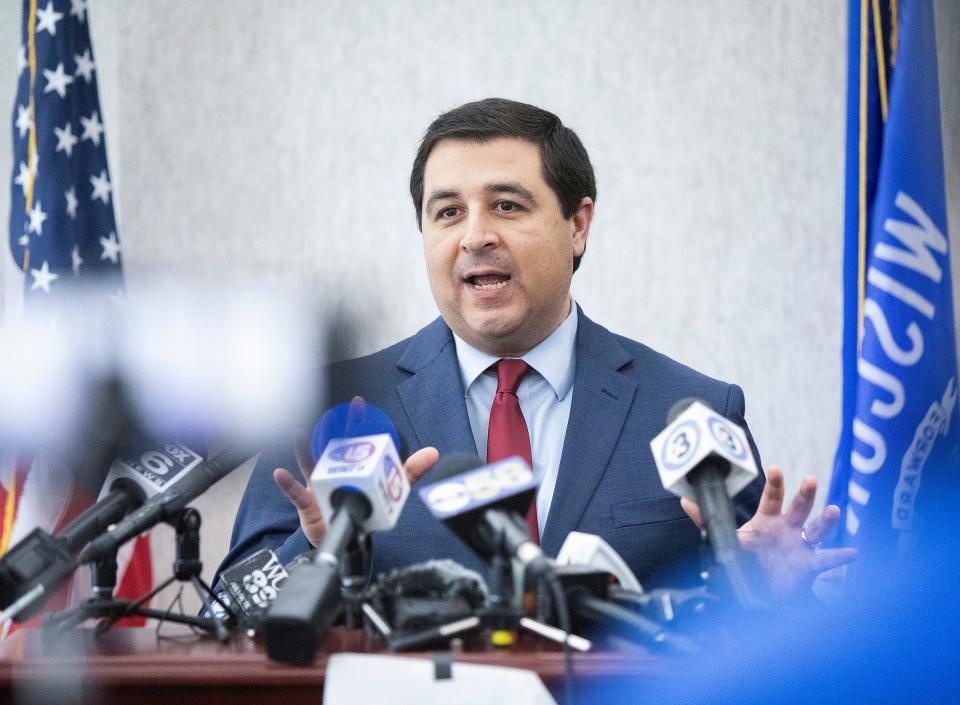Quick appeal vowed in ruling finding Wisconsin's 1849 law doesn't ban abortions

- Oops!Something went wrong.Please try again later.
MADISON – A Dane County circuit judge's ruling making abortions legal again in Wisconsin will be quickly appealed, setting the stage for the issue of abortion access to be decided by the state's highest court.
Sheboygan County District Attorney Joel Urmanski said Wednesday he plans to appeal the Tuesday evening ruling by Dane County Circuit Judge Diane Schlipper that declared an 1849 law titled abortion actually applies to feticide instead.
"In my view, the statute plainly applies to abortion, and while it may be that the citizens of Wisconsin would be better served by a different statute, I do not believe it is my job or the role of the courts to make that determination," Urmanski said in a statement provided to the Journal Sentinel by an attorney. "It is an issue for the Legislature and the Governor to resolve."

Attorney General Josh Kaul, a Democrat who launched the lawsuit, also said lawmakers should be taking up the matter.
"The legislature can resolve this case immediately by passing legislation that protects access to safe and legal abortion. That hasn't happened and didn't happen and access to abortion was essentially unavailable in Wisconsin," Kaul said. "Having clear connections in state statute for that fundamental right and essentially codifying Roe v. Wade in Wisconsin, that would be the most straightforward way, but absent that having a court decision... will also be effective."
Republicans who control the state Legislature have been unable to agree on legislation to define rules for abortions in Wisconsin since the U.S. Supreme Court overturned Roe v. Wade in 2022. Democratic Gov. Tony Evers also has said he would veto legislation that keeps the 19th Century law in place.
The state's abortion law, which was interpreted until now to ban all abortions except when the mother would die without one, was put back into effect when the U.S. Supreme Court overturned Roe v. Wade, allowing states to set their own abortion policies. That move pushed Kaul and Evers to file a lawsuit to overturn the law altogether.
Whether the 1849 law is enforceable is at issue in the lawsuit. Republican lawmakers, abortion opponents and conservative legal experts say the law was in effect. But nonpartisan attorneys for the state Legislature, Democratic lawmakers, and supporters of abortion access said potential and expected legal challenges muddied the answer to the question.
Practically, abortions were not available in Wisconsin after the ruling given the legal uncertainty and the state ban in statute. In September, Planned Parenthood of Wisconsin resumed providing abortions after Schlipper issued an order signaling her decision. The debate over abortion access in Wisconsin has become central to political campaigns since then, including the 2022 governor's race and the spring race for state Supreme Court.
Schlipper on Wednesday ruled that the law in question does not apply to abortions but to feticide.
A consensual abortion is sought out by a pregnant woman who voluntarily determines to end a pregnancy. Schlipper's ruling is based on a 1994 state Supreme Court decision that determined feticide is a nonconsensual act in which somebody batters a woman to the point she loses the pregnancy.
With the 1849 statute no longer in effect, Wisconsin returns to its pre-Dobbs abortion laws, under which abortion is banned after 20 weeks of pregnancy.
Passed more than a century before the Roe ruling, the 1849 law bans doctors from performing abortions in every case except when the mother will die without the procedure. Doctors face up to six years in prison on felony charges and $10,000 in fines if they violate the law.
Kaul argued in the lawsuit that the 1849 law has been invalidated by abortion laws passed since the Roe v. Wade decision. Anti-abortion proponents and attorneys for Republican lawmakers disagreed, arguing the original law was still in effect.

In July, Schlipper denied a motion from Urmanski to dismiss the lawsuit. Urmanski argued that Kaul was asking a judge to perform the duties of lawmakers and was ignoring the fact that lawmakers have put forward language to repeal the original abortion law and decided against passing it.
Following Schlipper's July order, Planned Parenthood of Wisconsin, the state's largest abortion provider, resumed services.
Wisconsin Right to Life legislative director Gracie Skogman said Wendesday's ruling is "truly disappointing for all Wisconsinites," and Pro-Life Wisconsin legislative director Matt Sande called it "an extraordinary leap in logic."
"A law that was enforced before the flawed decision of Roe is now one that pro-choice activists on the court are wiling to use as a tool for their cause. Instead, they are putting lives on the line," Skogman said.
Julaine Appling, president of the conservative Christian group Wisconsin Family Action, said she wasn't surprised by the decision but looks forward to the case making its way through the judicial process.
"This doesn't change anything about what we're doing," Appling said. "We are about a culture of life, and we're going to promote that and do everything we can to help people to understand that we are about saving babies, but we're also about making sure women are fully informed about this life-taking decision, about options they have, about consequences and encouraging them to explore that, and be very, very careful before they make a decision to have an abortion."
Appling said her organization supports a package of legislation that includes bills that would classify unborn children as dependents for tax purposes and increase the dependent exemption, fund grants for families seeking to adopt, further define "abortion" under state law and prohibit public employees from engaging in abortion-related work within the scope of their government employment.
Under the state's pre-Dobbs laws, women are also required to undergo an ultrasound before an abortion, along with a counseling appointment and a 24-hour waiting period.
In the case of medication abortions, the doctor who administers the pills must be the same one the woman saw for her counseling appointment, and the pills cannot be taken remotely via telemedicine.
The case is expected to make its way to the state Supreme Court, which now has a 4-3 liberal majority. Justice Janet Protasiewicz was sworn in Aug. 1 after running a campaign that focused heavily on broadcasting her personal values to voters, including support for abortion access.
Jessie Opoien of the Milwaukee Journal Sentinel contributed to this report.
Molly Beck can be reached at molly.beck@jrn.com.
THANK YOU: Subscribers' support makes this work possible. Help us share the knowledge by buying a gift subscription.
DOWNLOAD THE APP: Get the latest news, sports and more
This article originally appeared on Milwaukee Journal Sentinel: Appeal vowed over finding Wisconsin's 1849 law doesn't ban abortion

